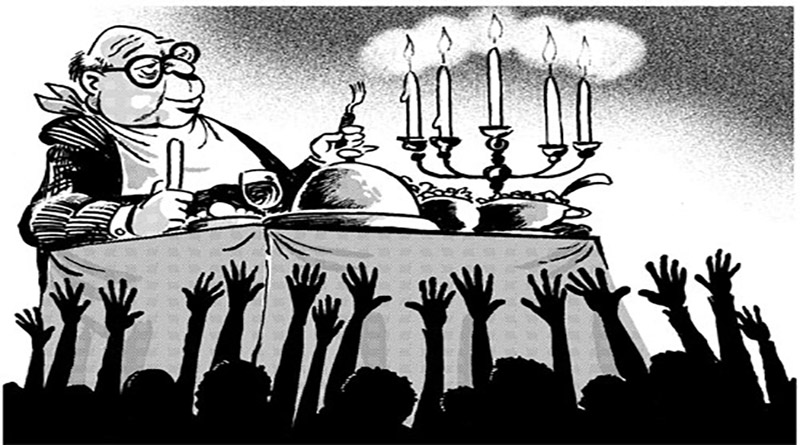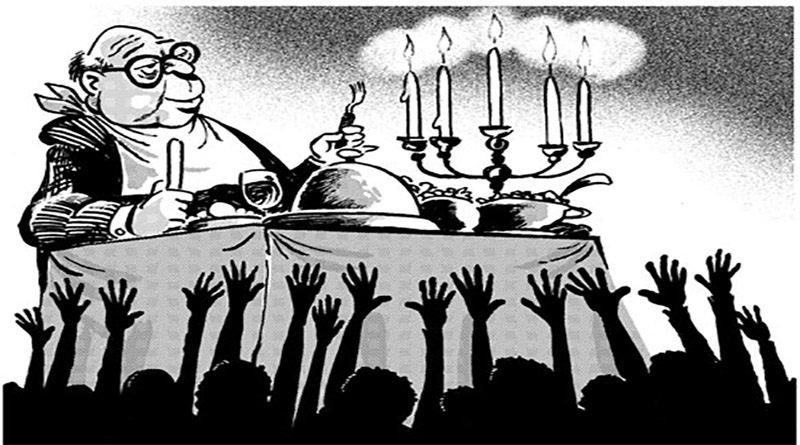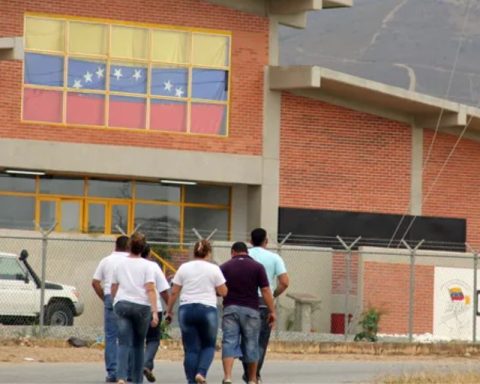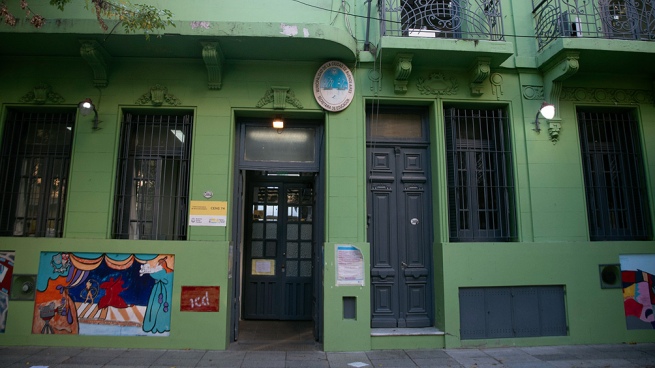 There is nothing more democratic and depolarized in Venezuela today than the economic and social crisis. Except for the well-known little group of oligarchs who have obscenely enriched themselves with the current situation -some inside the State apparatus and others counting on its complicity-, all other Venezuelans are daily victims of that miserable cocktail of insecurity, high cost of life, absence of basic services, scarcity and defenselessness that characterize the daily life of our battered country, especially the poorest sectors and the most vulnerable social groups, such as women, children and the elderly.
There is nothing more democratic and depolarized in Venezuela today than the economic and social crisis. Except for the well-known little group of oligarchs who have obscenely enriched themselves with the current situation -some inside the State apparatus and others counting on its complicity-, all other Venezuelans are daily victims of that miserable cocktail of insecurity, high cost of life, absence of basic services, scarcity and defenselessness that characterize the daily life of our battered country, especially the poorest sectors and the most vulnerable social groups, such as women, children and the elderly.
Faced with this crisis that does not establish major differences or discriminate, Venezuelans have taken to the streets for a long time. In the first 4 months of 2022 alone, according to figures from the Venezuelan Observatory of Social Conflict, 2,677 protests were registered – an average of 22 daily protests throughout the country – which represents an increase of 30% compared to the same span of last year. Venezuela boils every day in expressions of discontent and social demands, despite government repression and the invisibility strategy applied by many media outlets, which means that you may not see them –therefore, believe that they do not exist- and also eat the story of the sleepy country. But the government does know they exist.
To prevent the accumulation of these sources of conflict from connecting with each other and reaching a strength of political pressure necessary to achieve the changes that society demands, the Maduro government once again rescues the old fascist recipe of polarization. The strategy consists of intentionally dividing a country where everyone suffers, into 2 politically opposed blocs: guilty against innocent, traitors against patriots, good against bad, opposition against Chavismo. Thus, the goal of polarization is to direct the generalized popular frustration towards an artificial enemy – the other Venezuelans – and not towards the government, which is primarily responsible for the suffering of the people.
This well-known strategy from the manuals of fascist militarism, despite being predictable and worn, is still effective for the objectives of domination. That is why the insistence of some opposition sectors, surely well-intentioned, in innocently falling into the government’s trap and playing their old game of polarization and political division is worrying.
It must be insisted that those who suffer from this government are almost all Venezuelans, except again for the rich and oligarchs that we all know. Those who show anguish over the march of the country and want to live in a different reality are a vast majority, according to the most reliable public opinion studies. However, not all of them subscribe to the opposition sidewalk nor do they still perceive in it a credible, seductive option, of clear inspiration and popular vocation to assume their orientations, suggestions for action and much less their struggles. In other words, it is one thing to be dissatisfied with the government and quite another to identify with the opposition, especially if it allows them to reduce it to polarizing slogans and messages, which only reinforce the previous political position of those who listen or observe them. For this reason, the challenge of the democratic alternative is precisely to transform this enormous social discontent into political force. But this happens by confronting the strategy of artificial polarization of the official laboratories to reinforce the meeting and the approximation of all the sectors that suffer from this tragedy called government.
In the face of the government’s strategy of political polarization to weaken social frustration, the smart thing to do is direct efforts so that the population progressively perceives that the only real polarization today in Venezuela is that of the oppressors against the oppressed, that of the exploiters against the exploited, that of those who laugh against those who cry, no matter which party or political faction they identify with.
What does this mean from a practical point of view? Without undermining other suggestions, it is about strengthening the connection between and with popular organizations, encouraging them to strengthen their autonomy and capacity, accompanying and connecting the many manifestations of social protest and struggle for the violated rights of the people, accompany each expression of protest and become the defense attorneys of those who claim, regardless of their political affiliation; use the excellent platform of more than a hundred local authorities obtained on November 21 to turn them into platforms for the defense of threatened popular rights, and for meeting the proposals and demands of the different local sectors in conflict situations; show solidarity with the hardships of workers and vulnerable sectors still identified with the government, and seek forms of communication with the population that is socially upset but politically indecisive or even still sympathetic to the ruling party.
The best way to speed up and make viable the changes that our country requires is accompanying the organization and the struggles of the people –especially those who are not yet ours– due to the problems they are suffering today. The objective must be that people suffer less, and that they know that there are those who defend them, regardless of their political beliefs. And to bet on creating, in the face of the regime’s political polarization strategy, an intelligent social repolarization, but between those affected by the crisis and those who generate it for the benefit of their own interests.
@angeloropeza182
















